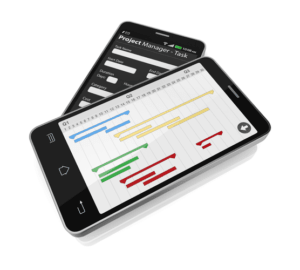
For LLCs, proper accounting requires understanding unique tax scenarios, establishing solid bookkeeping habits, separating business and personal finances, and reviewing the books regularly. While maintaining an LLC’s finances may involve more record-keeping than a sole proprietorship, staying on top of the books will ensure your LLC remains compliant and in good standing. Avoid co-mingling personal and business finances by setting up dedicated business bank accounts and credit cards. Selecting the right accounting software is crucial for managing your LLC’s finances effectively. While popular options like QuickBooks help track income, expenses, account balances, and transactions, there are also free accounting software choices available that offer similar features.

Set up a general ledger
In addition, sole proprietorships can be more difficult to finance than other types of businesses. For these reasons, it is important to carefully consider all pros and cons before deciding to form a sole proprietorship. Once you’ve established your accounting firm as an LLC, you can open a business bank account and start operating as a legitimate llc accounting method business entity. Payroll services like Gusto can automatically handle paycheck direct deposits, payroll tax filings, and issuing tax forms like W-2s. Set quarterly or monthly time on your calendar to review statements, run financial reports, reconcile accounts, and look for any inconsistencies.

Tip 2: Your General Ledger Is Your Business Bible
- Limited liability company owners should focus on building sound accounting strategies to maintain their business finances from the very beginning.
- Commingling funds should be avoided at all costs to uphold legal protection while maintaining clear financial records.
- Multi-member LLCs are taxed as partnerships, so a partnership tax return must be filed, with profits/losses passed through to members’ personal returns.
- LLCs can choose to use either the cash method or accrual accounting.
- A general ledger is one of the key pieces of sound bookkeeping practices and the basis of an accounting system.
An entrepreneur will need to understand how LLCs are taxed by the state and federal government before forming a limited liability corporation. This will make sure the business taxes are filed according to the law. Outsourcing accounting for LLC can offer benefits such as cost savings, access to professional expertise, and reduced workload. By hiring a third-party service like Profit Line, the company can focus on core business activities while ensuring that financial records are accurately maintained. Adhering to specific IRS guidelines based on the structure of an LLC ensures compliance with federal tax obligations. For example, if an LLC opts for corporate taxation (Form 8832), it must file separate returns from its owners while following additional rules set forth by the Internal Revenue Service.

What tax obligations do LLCs have?

Small business owners often find it helpful to maintain a separate General Ledger for each business they own. This helps them keep track of business accounts and income and expenses. Many LLCs start with cash basis because it’s simpler, then transition to accrual as revenues increase over $1-5 million. normal balance Accrual better matches income and expenses to time periods and is required for audited financial statements.
- The platform makes financial management more accurate and efficient.
- Small business owners often find it helpful to maintain a separate General Ledger for each business they own.
- Even though the LLC doesn’t pay taxes as a corporate entity, it still needs to file Form 1065.
- Sales, marketing, and accounting are all key administrative areas for new LLC owners (known as members).
- It also means more accurate bookkeeping, better financial management, and a more efficient business.
Before establishing an LLC, you should seek the advice of a qualified tax professional who can explain how this entity is taxed at the state and federal levels. An LLC is treated as a pass-through entity by default, which means profits and losses are reported on each member’s individual tax return. Most of the purchased programs have internal spreadsheets already established. Whether you use manual paper or electronic spreadsheets, create a file tab that has this same account Bookkeeping for Chiropractors and contact information. Debits and credits should always equal each other so that the books are in balance. Join over 1 million businesses scanning receipts, creating expense reports, and reclaiming multiple hours every week—with Shoeboxed.

Having a third-party vendor is best anyway, as it frees you to spend more time running your business, less time filing paperwork. LLCs, like other companies, have to abide by the laws and regulations of the state and federal governments. For many LLCs, especially single-member LLCs, outsourcing this task could be a way to ensure it runs smoothly, especially with regard to some harder tasks, such as for tax purposes. Additionally, a Schedule K-1 is also filed to show the member’s share percentage. Members are protected against the financial risk of running a company, such as a potential lawsuit.

Leave a comment